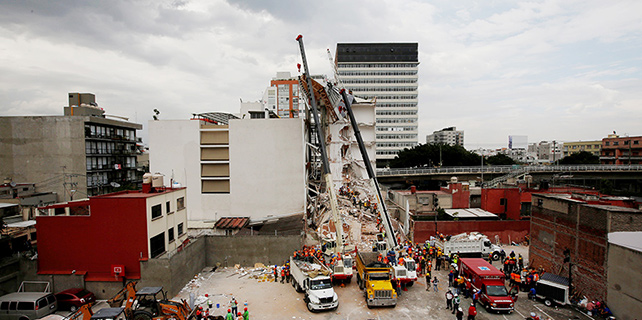New firms negotiate rough weather
 |
|
Selfie-taking visitors soak in the atmosphere at the 2017 Startup Week in Shanghai earlier this month. [Photo by Wu Kai/for China Daily] |
Survey shows hardware, realty, education sectors see many failures
Chinese startups, especially those in hardware, education and real estate sectors, have struggled to survive their first four years, according to a survey report.
The World INS Conference report, compiled by Urwork and the Standard Ranking City Institute, sampled 150 enterprises that went bankrupt this year.
Some 70 of the 150 firms, or nearly 47 percent, were set up in 2013;17 percent were set up in 2012, and almost 13 percent in 2014.
"Because of the fierce competition, most of the failed startups are in the sectors of hardware, education, properties, O2O (offline-to-online) and automobiles," said Xie Liangbing, president of the Standard Ranking City Institute, one of the publishers of the report.
"As those areas are the most attractive business sectors for investors, they take a big slice in the sample for the research."
After the boom in China's internet-related innovation and entrepreneurship market since 2015, startups saw moderate growth last year, with both entrepreneurs and investors becoming more cautious, according to the report.
Three enterprises shut in their first year of operations.
In June, e-commerce giant JD Group announced its used goods trading platform, JD Kumai, which opened in February, closed. It now wants to transform its business model.
Xianyu.com, a similar website of JD's competitor Taobao, however, became popular, having been a part of traditional e-commerce since 2015.
The booming Chinese bike-sharing market also saw the demise of Wukong Bicycle less than five months after its establishment, the first failure of its kind.
According to the report, most of the startups and incubators were in the first- and second-tier cities with rich human resources and a mature market.
Meanwhile, more and more enterprises are starting up to better serve the real economy with their innovative ideas.
According to Xu Shaoshi, head of the National Development and Reform Commission, startup accelerators helped stabilize and optimize the economy while boosting employment.
The number of innovation and entrepreneurship platforms grew rapidly to 7,953 by 2016, topping the world rankings, data from the Torch High Technology Industry Development Center of the Ministry of Science and Technology showed.
Such platforms include accelerators, maker spaces and technology business incubators. Of the three categories, incubators surged from 2 in 1987 to 3,255 in 2016.
The report said the number of national maker spaces reached 1,300 last year, more than double that of previous several years.
The innovation and entrepreneurship platforms now constitute an orderly industry, it said.
At the same time, incubators are focusing more on professional and tailored services. In 2016, professional incubators were about half of tech startup incubators, the report said.






















